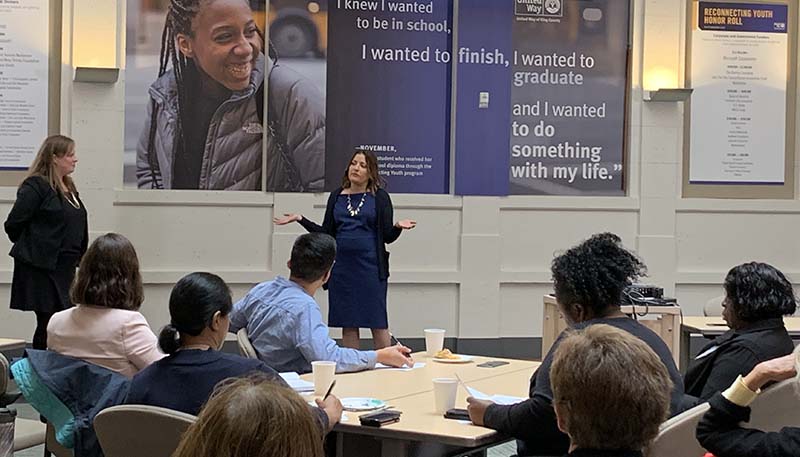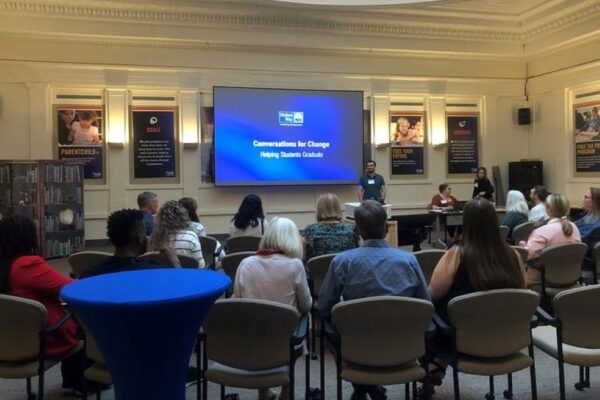Nearly half of community college students don’t complete their education
Wait. What? More than half?
That’s right – turns out that students community colleges serve have a different experience than students at more traditional colleges. Community college students are more likely to be low-income: 20% are parents, 44% are people of color, many are working full-time jobs.
So, why don’t they persist in their education? National expert Sara Goldrick-Rab was speaking with United Way Champions Donors last week and said it’s simple: “Life and logistics get in the way. Our research shows that these students are not dropping out because of bad grades. They’re dropping out because they don’t have their basic needs met.”
“The real trick to survive college when you have an unexpected need for $200 or $300? We know the trick. It’s called having a wealthy family.” Goldrick-Rab says, expanding that thought to say that when you have family to help you rebound various setbacks, they don’t end up being setbacks. Low-income students don’t have that safety net.
Think ‘wealthy’ sounds a little far-fetched? Not so much when you consider that nearly 40% of Americans say they would struggle to cover a $400 emergency expense like a car repair or medical expense. Our team has seen the impact of this at the community college level. When students are faced with an unforeseen expense, they often can’t see their way out and their impulse is to forgo school so they can earn money in the short-term. Hundreds of students have benefited from United Way’s one-time emergency grants.
Racial Equity Matters
The wealth gap in the Seattle-King County area is huge along race and ethnicity lines. Households headed by a white or Asian person here have a median net worth of around $450,000. For Latino households, it’s around $90,000 and for black households, only about $23,000.
This makes our work on campuses even more relevant. Our Bridge to Finish program is helping students of color stay in school so they can complete their education and go on to have higher earning potential over their lifetime.
We know the transformative power of a college degree.
We need to take risks on people who are already behind. They need college to get ahead.
Sara Goldrick-Rab, Professor of Higher Education and Sociology at Temple University
Goldrick-Rab told the group that “community organizations like United Way of King County are so important” because the community colleges cannot do it on their own.
What she looks for:
- Viable. It’s important that community organizations understand the challenges that students and the colleges are facing. They don’t pretend that the community college environment is the same as Stanford. It isn’t.
- Sustainable. The ROI will become evident – this isn’t something that will require philanthropic investment forever.
- Effective. Evaluation on these programs is key – when you’re comparing to a control group, you’ll see the differential between students who are getting these interventions and students who are not.
Goldrick-Rab said that Bridge to Finish is off to a great start in these areas and announced that her team will be doing an evaluation on the impact that Bridge to Finish support is having on student’s completion rates.
Want to support this great work?





Comments